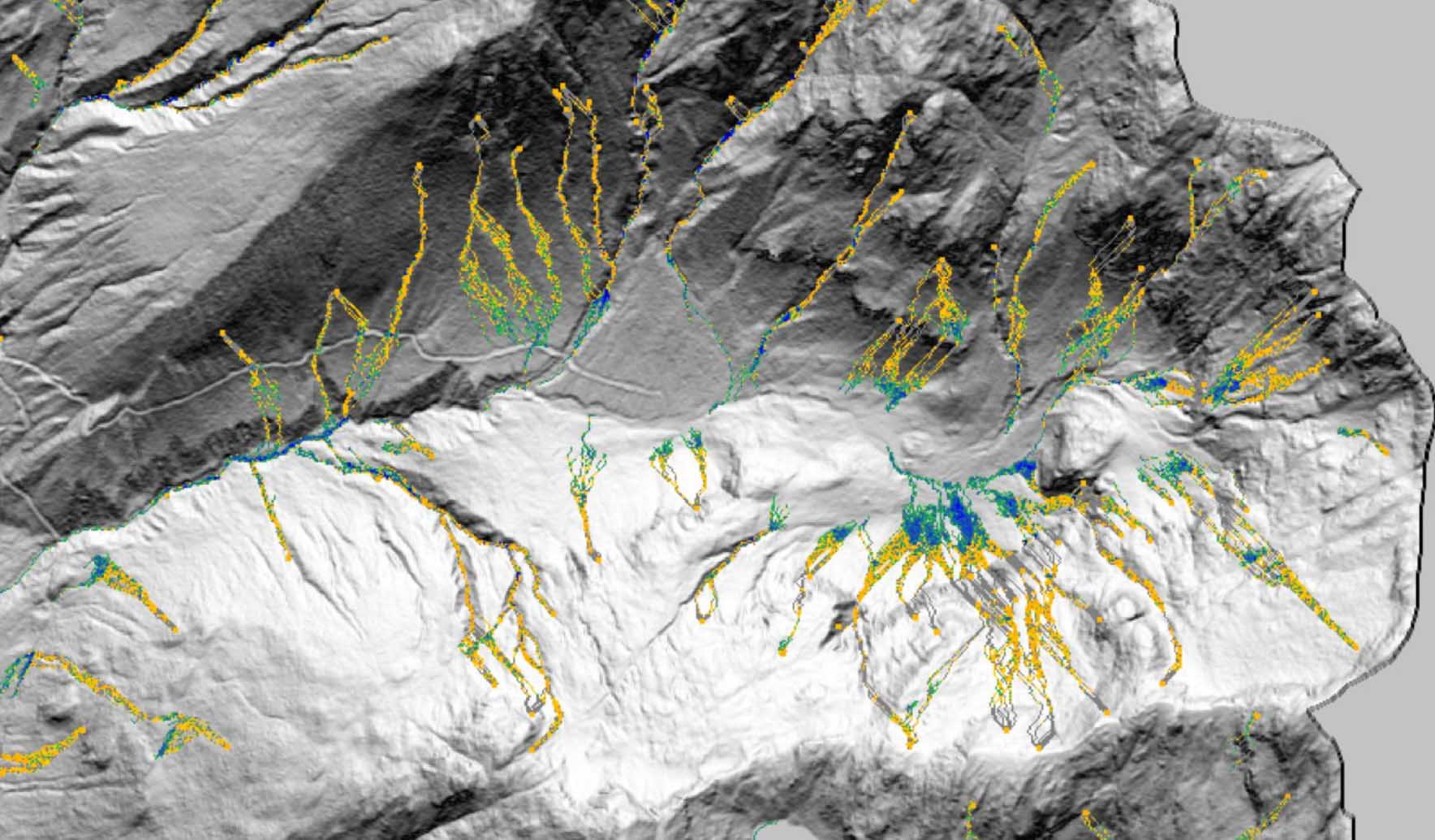Ecosystem Restoration
Assisting ecosystem recovery with a results-oriented approach
We understand ecosystem restoration is all about re-establishing ecological function to damaged or degraded environments through design, management, and monitoring. Our diverse team is here to serve as a trusted technical advisor in helping achieve your restoration goal—at nearly any scale or location. The perfect synthesis of understanding the local environment, deep bench of in-house multidisciplinary staff, and constant focus on innovation and safety is what drives our success.
What does ecosystem restoration look like?
Degraded, damaged, or destroyed ecosystems could be anything from mountains after a landslide to streams impacted by urbanization. Ecosystem restoration uses nature-based solutions to recover those areas, improving their natural processes and creating opportunities for resilient planning. Curious to see what an ecosystem restoration project looks like before and after our work? Read MoreProud UN Decade partner
The United Nations (UN) believes it’s time to prioritize ecosystem restoration. With the world’s population growing, we have to provide more food, energy, and clean water to more people. This trend, combined with climate change and biodiversity loss, is driving the critical need for this work—which is why we’re partnering with the UN for the Decade on Ecosystem Restoration (2021-2030). Like the UN, we believe healthy ecosystems enhance people’s livelihoods, counteract climate change, and stop the collapse of biodiversity. Read MoreCreating space for life on land: Putting savings in our environmental bank
When an infrastructure project impacts a highly functioning wetland, stream, or critical habitat, state and federal agencies require the lost functionality be replaced by restoring that ecosystem in another nearby geography or by purchasing credits from a private mitigation bank. This helps offset the impact from development while promoting ecosystem services such as improved air and water quality, enhanced habitat, flood, and erosion protection, and higher crop yields. Something future generations will certainly need to cash in on.Ending hunger and achieving food security are a priority
The worldwide decline of pollinators is posing serious threats to global environments and economies through loss of biodiversity and impacts on food production. Insect pollination is valued at more than $200 billion, yet habitats continue to decline. Our Ecosystem Restoration team strives to demonstrate why this crisis matters. Incorporating proactive thinking and planning into our client’s projects not only supports pollinators and their habitats, it also creates a positive corporate image and sense of community pride.Our People
-

Michael F. Adams, Jr.
Principal
-

Michael Chelminski
Senior Principal, Environmental Services
-

Josh Running
Principal
-

Heather Amirault
Surface Water Engineer
-

Matt Wood
Principal
-

Roger Windschitl
Senior Principal, Environmental Services
-

Matthew Starr
Principal, Southeast Coastal Team Lead
-

Melissa Curran
Environmental Scientist/Botanist
-

Paige Baker
Senior River Restoration Engineer
-

Amy Flansburg
Ecologist
-

Nick Danis
Associate, Environmental Engineer
-

Shawn Duke
Associate, Business Center Practice Leader
-

Tomer Katan
Marine Biologist
-

Nicholas Pomplun
Carbon and Sustainability Analyst
We’re better together
-
Become a client
Partner with us today to change how tomorrow looks. You’re exactly what’s needed to help us make it happen in your community.
-
Design your career
Work with passionate people who are experts in their field. Our teams love what they do and are driven by how their work makes an impact on the communities they serve.























